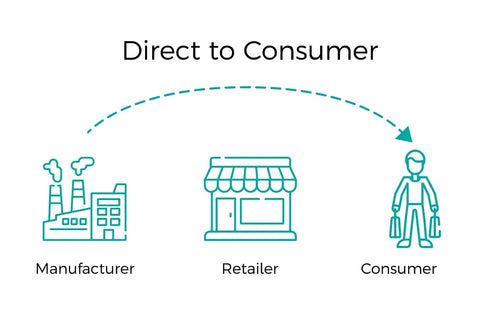Electric bikes are becoming one of the primary modes of transport in cities. Commuters are starting to see the benefits of leaving their cars at home in favor of riding electric bikes. Therefore, every electric bike manufacturer now builds electric commuter bikes. You can ride through towns faster on an electric bike than in a car, and they are easier to park. But, financially, are electric bikes worth it?

In this article, we'll go through the costs of commuting on an electric bike and compare them with driving. We'll also talk about the other elements of commuting with an electric bike and in a car.
The Costs Of Commuting on An Electric Bike
You may think that the initial cost of buying an electric bike is still pretty high. But even the best electric bikes are significantly cheaper than buying a car. However, people really start to see electric bikes' financial advantages when comparing ownership costs.
Let's consider the scenario of owning an electric bike with a 672Wh battery. To fully charge this battery in the U.S. would cost $0.0886. This figure is based on the battery's 0.0672kWh (672/1000=0.0672) and the U.S. national average electricity rate of 13.19 cents.
Suppose you had to charge your battery twice per day; it would cost you less than $0.18 per day. In the U.S., most people travel to work 230 days per year, so if they commute on an electric bike, it would cost them no more than $41.40 annually.
The Costs Of Commuting By Car
U.S. fuel costs average $1,296 per year based on a 32-mile round-trip commute. Most vehicles in America have an average fuel economy of 25 miles per gallon, meaning they use 1.28 gallons every day at $3.07. The 230 days of commuting each year at this rate would cost an American $706.10.
Comparing Electric Bikes And Cars
As we've just discovered, the cost of powering an electric bike is significantly lower than the cost of filling up a car with fuel. Obviously, an electric bike cannot replace a car for every journey. But there are many cases where people can leave their cars at home and ride an electric bike instead. Also, most people would only need to charge their bikes once a day or every couple of days. In addition to this, the more they ride, the fitter they will become, reducing the need to charge the battery so often.
When an electric bike replaces a car, the owner will enjoy several other financial benefits. For example, an electric bike is much cheaper to maintain than a car. Parts, labor, and tires are also less expensive.
The possible savings achieved by replacing commuting journeys by car with an electric bike depend on your circumstances and location. But, just by looking at the average figures mentioned above, it's clear that commuting by electric bike is significantly kinder to your wallet than by car.

What If My Electric Bike's Range Isn't Long Enough?
You can do a few things if your daily commute is longer than your electric bike's range. Firstly, consider buying a folding electric bike. Most electric bike manufacturer offer a range of folding bikes with more versatility. The compact size of a folding electric bike means you can carry it on public transportation, allowing you to travel further than the battery's range. By taking your bike on the train or bus, you can use it to finish the last few miles of your journey.
Folding electric bikes also fit in most cars. Therefore, you can drive to the city's outskirts and transition to your folding electric bike to get to work. This means you can avoid the charges associated with low-emission zones and parking.
Your battery may have enough range to get you to work but not home again at the end of the day. You can remedy this problem by carrying an additional charged battery for the return journey. Alternatively, keep a spare battery charger at work, so you can charge throughout the day, ready for home time.
I Need To Carry Things
An electric bike will never have the load-carrying capacity of a car. However, that doesn't mean you cannot use one for commuting. Electric bike manufacturers offer all sorts of bikes to suit people's needs. It's easy to find an electric bike with a cargo rack big enough to carry a laptop and your lunch. You can also buy electric cargo bikes specially designed to haul heavy loads. They have powerful motors, large-capacity batteries, and a range of load-carrying capabilities.
A great place to start looking is fiido.com. Fiido has a significant selection of electric bikes catering to commuters' needs.
Commuting On An Electric Bike Is Better For Your Health
One of the most significant advantages of commuting on an electric bike is the positive impact on your health. Riding an electric bike still requires you to put effort into the pedals, even on the highest assistance level. Pedaling makes you stronger, improves cardiovascular health, and helps control your weight. In addition to this, riding an electric bike is excellent for your mental health. You start your day without the stress of battling through traffic and unwind with a fun ride home at the end of the day.
A healthy body and mind from riding an electric bike outweighs the financial benefits. Although traveling in the comfort of a car is easy, it does nothing good for your health.

Final Thoughts
So, are electric bikes worth it? As you can see, the financial benefits of electric bike ownership are significantly better than owning a car. There are times when an electric bike is no match for a car. But the key is to learn when to leave the car at home when possible.
After a few days of commuting on an electric bike, you'll start to feel better. Your journeys to and from work will become more pleasant, positively impacting your life. So, when it comes to happiness, longevity, and saving money, an electric bike is definitely worth it.
If you like the idea of commuting on an electric bike, check out the electric bike manufacturer Fiido. Their best electric bikes are stylish, practical, and well-priced.













